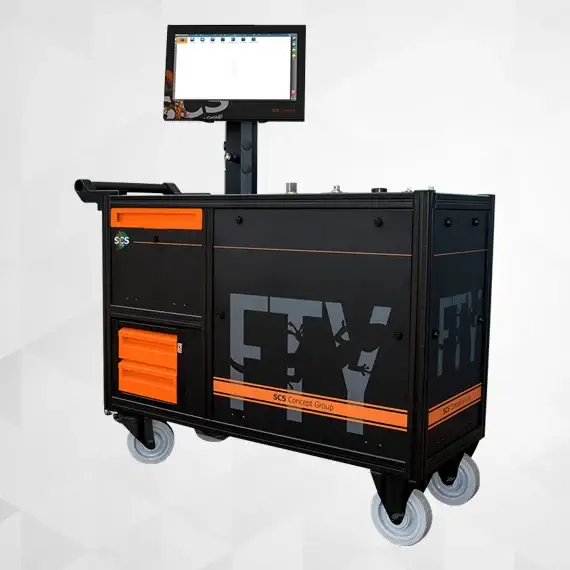FTY: The Revolutionary Torque Tool Tester - Simulating Real Fasteners for True Torque Insights
Tired of generic testing benches that fail to capture real-world fastening scenarios? Introducing FTY, the first tool tester that truly mimics the full spectrum of fastener behavior. This game-changer outperforms traditional benches by 40% and delivers unmatched accuracy and insights for your power tools and wrenches.
FTY's magic lies in its unique abilities:
Test virtually any tool: From electronic wrenches to pneumatic and battery-powered options, FTY handles them all (except impact wrenches).
Go beyond simple torque: Analyze joint behavior, tool performance, and process control with features like:
- Statistical Process Control (SPC): Track machine capability and optimize tightening processes.
- Click point auto-detection: Verify click torque accuracy in click wrenches effortlessly.
- Comparative testing: Compare different tools and identify the best performers.
- Mechanical wrench loader: Simulate real-world tightening scenarios.
- External transducer connectivity: Expand testing capabilities for specific needs.
- Joint editor: Simulate complex, non-linear joint behavior for even more precise testing.
Fast and hassle-free setup: Get started quickly and easily, saving you valuable time.
Fully customizable: Tailor FTY to your specific needs with hardware and transducer configuration options.
SQnet+ integration: Seamlessly integrate with SQnet+ software for comprehensive data management.
Robust design, minimal maintenance: Enjoy a reliable tool that requires minimal upkeep.
FTY delivers tangible benefits:
- Optimize tool selection and usage: Choose the right tool for the job and maximize its efficiency.
- Reduce downtime and maintenance: Identify potential issues before they cause costly disruptions.
- Ensure compliance: Confidently meet industry standards like ISO 6789 and 5393.
- Make data-driven decisions: Gain valuable insights to improve your entire fastening process.
Versatile Tool Compatibility
1. *Wrenches:* Covering electronic/digital, click, and a variety of torque tools.
2. *Pneumatic, Electric, and Battery Tools:* Ensuring broad compatibility for various applications.
3. *Pulse Tools:* Exceptional testing capabilities, excluding impact wrenches.
Precise Torque/Angle Curve Definition
1. Tailored Production Line Programming: Define torque/angle curves precisely for fasteners used with torque tools.
2. Hard to Soft Joint Range: Comprehensive testing covering the entire spectrum, from hard joints to soft joints.
Statistical Process Control (SPC)
1. Machine Capability Measurement (Cm, Cmk): Assess and measure the capability of your torque tools.
2. X, R Charts: Implement Statistical Process Control for continuous improvement.
Compliance with International Standards
1. ISO 6789: Adherence to torque tool testing standards.
2. ISO 5393: Comprehensive testing methodologies aligning with industry standards.
FTY is more than just a tester; it's a revolution in tool analysis. Experience the difference and unlock the true potential of your tools.
After the sale, we are delighted to assist you with any technical concerns or inquiries. Don't hesitate—let's connect! Feel free to reach out to us via phone: 828282-9795 or drop us an email at lead@absgroup.in. We're here to help and ensure your satisfaction.


